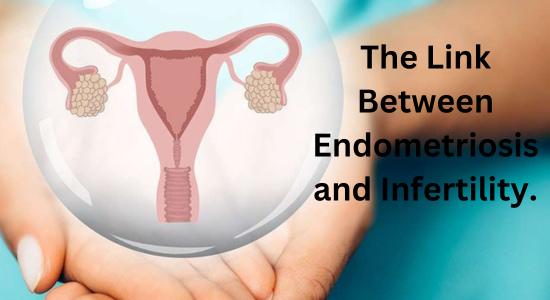Stress is a universal experience, affecting individuals across the globe in various forms, from daily life pressures to more significant life events. While stress may seem like a temporary condition, its effects can extend deeply into various aspects of human health, including the reproductive system. The relationship between stress and reproductive health is complex, with evidence suggesting that stress can have a profound impact on both male and female fertility, pregnancy outcomes, and overall reproductive well-being. This article aims to explore the effects of stress on reproductive health, focusing on the mechanisms behind these effects, the consequences for women, and the potential ways to mitigate the negative impacts of stress.
Understanding Stress and the Reproductive System
Before delving into the specific effects of stress on reproductive health, it is important to understand what stress is and how it affects the body. Stress is the body’s natural response to external pressures or demands, which can be physical, mental, or emotional. When a person encounters a stressful situation, the body reacts by releasing stress hormones, such as cortisol and adrenaline, which prepare the body to respond to the perceived threat—commonly referred to as the “fight-or-flight” response.
These stress hormones have various effects on the body. In the short term, they can help an individual respond effectively to a stressful situation by increasing heart rate, blood pressure, and alertness. However, when stress is prolonged or chronic, these hormones can begin to interfere with normal bodily functions, leading to a range of health problems. One of the areas that can be significantly impacted by chronic stress is the reproductive system.
Stress and Female Reproductive Health
In women, stress can affect reproductive health in multiple ways, influencing menstrual cycles, ovulation, fertility, and even pregnancy outcomes. Below are the primary ways that stress impacts female reproductive health:
1. Menstrual Cycle Disruptions
The menstrual cycle is highly sensitive to hormonal fluctuations, and stress can disrupt the delicate hormonal balance required for regular menstruation. Chronic stress leads to the overproduction of cortisol, which can interfere with the production of other hormones, such as estrogen and progesterone. These hormones play crucial roles in regulating the menstrual cycle.
Stress-related hormonal imbalances can result in irregular periods, delayed ovulation, or even missed periods altogether. In some cases, stress can cause a condition known as amenorrhea, in which menstruation ceases for several months. Amenorrhea can have significant consequences for a woman’s fertility and overall reproductive health.
2. Impact on Ovulation

Ovulation is the process by which a mature egg is released from the ovary, making it available for fertilization. Stress can interfere with ovulation by altering the secretion of gonadotropin-releasing hormone (GnRH), which is responsible for stimulating the release of follicle-stimulating hormone (FSH) and luteinizing hormone (LH). These hormones are necessary for the maturation of eggs and the process of ovulation.
When stress leads to altered levels of these hormones, it can result in anovulation, where the ovaries do not release an egg. This can cause infertility in women who are trying to conceive.
3. Impaired Fertility
Stress can also impact fertility by influencing the quality of a woman’s eggs, the function of the fallopian tubes, and the environment of the uterus. Chronic stress has been shown to increase oxidative stress in the body, which can lead to damage to the eggs, reducing their quality and the chances of successful fertilization. Additionally, stress can impact the immune system, creating an environment that may be less conducive to the implantation of a fertilized egg.
Women with high levels of stress may also experience changes in cervical mucus, which plays a key role in facilitating sperm movement into the uterus. If cervical mucus is altered by stress, it may hinder sperm from reaching the egg, making it more difficult to conceive.
4. Pregnancy Complications
Stress during pregnancy can have serious consequences for both the mother and the developing baby. Research has shown that women who experience high levels of stress during pregnancy are at an increased risk for preterm birth, low birth weight, and complications such as preeclampsia. Stress can also impact fetal development, potentially leading to long-term health issues for the child, including emotional or behavioral problems later in life.
Stress during pregnancy can result in the overproduction of cortisol and other stress hormones, which can cross the placenta and affect the baby’s development. Prolonged exposure to high levels of these hormones can disrupt the development of the baby’s brain and other organs, potentially leading to complications after birth.
Psychological Stress and Reproductive Health
In addition to physiological stress, psychological stress—such as anxiety, depression, and relationship issues—can have a profound effect on reproductive health. Mental health conditions such as depression and anxiety have been linked to altered hormonal function, changes in sexual behavior, and decreased fertility. For example, depression can lead to changes in the hypothalamic-pituitary-ovarian (HPO) axis in women, resulting in menstrual irregularities and ovulatory dysfunction.
Psychological stress can also create a negative feedback loop. The experience of difficulty conceiving or pregnancy complications can cause stress and anxiety, which in turn exacerbate reproductive issues. It is important for individuals struggling with infertility or pregnancy-related issues to address both the emotional and physiological aspects of stress.
Mitigating the Effects of Stress on Reproductive Health
Given the significant impact that stress can have on reproductive health, it is crucial to find ways to mitigate stress to improve fertility and reproductive outcomes. Some strategies include:
-
Relaxation Techniques: Practices such as yoga, meditation, and deep-breathing exercises can help reduce stress by activating the body’s relaxation response. These techniques have been shown to lower cortisol levels and improve overall well-being.
-
Exercise: Moderate physical activity can help reduce stress and improve mood by promoting the release of endorphins. However, excessive exercise can have the opposite effect, so it is important to maintain a balanced approach.
-
Sleep: Getting enough rest is essential for managing stress. Chronic sleep deprivation can increase cortisol levels and negatively impact reproductive health.
-
Therapy and Counseling: For individuals dealing with high levels of psychological stress, therapy or counseling can help address underlying emotional issues and teach coping strategies for stress management.
-
Diet and Nutrition: A balanced diet rich in antioxidants, vitamins, and minerals can help reduce oxidative stress and support overall reproductive health. Reducing caffeine and alcohol intake can also help mitigate the impact of stress on the body.
-
Support Systems: Strong social support networks, including partners, family, and friends, can provide emotional support and help reduce stress levels. In some cases, joining support groups for individuals struggling with infertility or pregnancy complications can also be beneficial.
Also read about: The Role of Community in Supporting Women’s Health.
Conclusion
Stress is a significant factor in reproductive health, affecting both men and women in various ways. Whether it’s through disrupted menstrual cycles, impaired fertility, or complications during pregnancy, the effects of stress on reproductive health are undeniable. Understanding the mechanisms behind these effects and taking steps to manage stress can help individuals improve their reproductive outcomes. By incorporating relaxation techniques, exercise, therapy, and social support into their routines, individuals can reduce the negative impacts of stress and enhance their reproductive health.
[Link to a related article “Effects of Stress on Pregnancy”]


Pingback: Women, do this Mindfulness Exercises to Reduce Stress